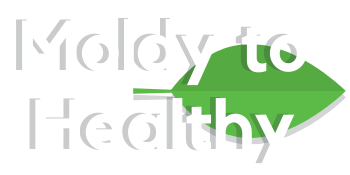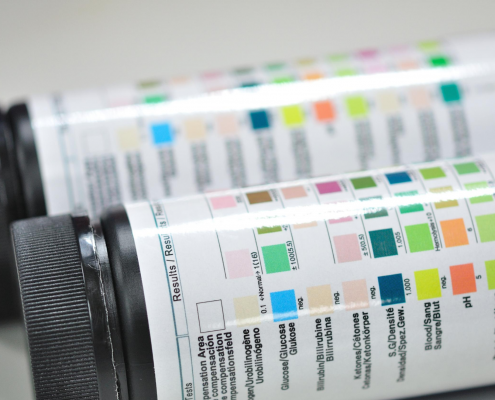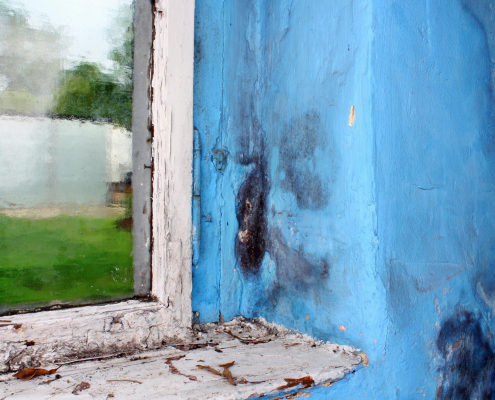Why Mold Urine Tests Don’t Work
by Dr. Will Mitchell
Why Mold Mycotoxin Urine Tests Don’t Work
Many people would like a single, simple test to tell them if they are sick as a result of being exposed to a building with mold. Unfortunately, that is not the reality of how our bodies work. And to make matters more confusing, there are laboratories out there telling doctors that they do, in fact, have such a simple, single test. But it’s not a valid test.
While these laboratories are government certified, this does not mean that their urinary mycotoxin testing will accurately diagnose mold illness. The test itself is actually testing for the presence of mold toxins (mycotoxins) in your urine. The problem lies in the fact that that doesn’t mean that those are causing your health problems. It is like saying having smoke in your house is proof that your house is on fire. Both burning houses and normal houses can have smoke. A normal house could have food burning in the oven. A bunch of candles could have just been blown out on a birthday cake. Someone could be smoking a cigarette. None of these examples require a call to the fire department. Urinary mycotoxin testing is just the same. The majority of healthy and unhealthy people test positive for mycotoxins in their urine — some research says up to 99%. This is because we have them in so many of our foods, but our bodies are designed to naturally eliminate toxins through urine, stool and sweat. Only when ingesting very high levels of moldy food can it make people sick, and if avoiding even the small amounts of mold found normally in our food makes them feel better, then they are likely very sensitive to other toxins found in things like cosmetics, body products, nonstick cookware, plastics — the list goes on.
The urinary tests are not even able to show the presence of mycotoxins in all people from a moldy house. I had a family with a moldy house that required removal of three walls from floor to ceiling because of a perpetually flooded crawlspace. The husband and wife were told by their lawyer (not a doctor) to get a urinary mycotoxin test, because that is what many mold practitioners incorrectly promote as a diagnostic for mold illness. The husband tested positive and the wife, who was also very sick, did not show any on her test. If this simple test can accurately diagnose mold illness, why would only one of the two very sick people in that household have a positive urine test? It’s highly unlikely that two people exposed to the same conditions and with very similar symptoms would have different results if a urine test for mycotoxins is accurate and valid. Consider the possibility that the wife’s body was less effective at eliminating mycotoxins, because of her dysregulated immune system caused by CIRS, while the husband was still able to clear some of the toxins in his urine. If they relied on the urine test alone, the wife would have been told she did not have mold illness, when in fact, upon further investigation and appropriate blood testing, she was given a positive CIRS diagnosis.
People sickened by water-damaged buildings that are full of mold and bacteria are exposed to a chemical soup. The soup included mold, mold fragments, mycotoxins, bacteria, bacteria fragments, bacterial toxins, volatile organic compounds (what you smell in a basement), and breakdown chemicals of building materials, all of which can trigger immune reactions and illness. Knowing how many compounds can cause health issues, how effective is only testing the mycotoxins? Not much. New research into the activation of immune system genes shows that the bacterial toxins are responsible for a much larger share of the trouble.
Why exactly aren’t urine mycotoxin tests reliable? In 2014, the CDC put out a statement that the use of urine mycotoxin tests is unvalidated for the clinical diagnosis of illness, and that still holds true today. They have a whole web page just for that. Government approved laboratories hold Clinical Laboratory Improvement Amendments (CLIA) certifications. CLIA regulations require the laboratory to meet specific quality and analytical standards to ensure accurate and reliable test results. However, CLIA regulations do not address the clinical validity of the test. That requires the approval of the FDA, and there is no FDA-approved test for mycotoxins in human urine. The only FDA-related part of the test is the use of a standardized parts-per-billion (ppb) format for the results. Mycotoxin levels that predict disease have not been established.
So what is the best way to know if you have mold illness? A group of tests that look at the immune system in action can show the mold illness, also known as Chronic Inflammatory Response Syndrome (CIRS). Doctors trained in diagnosing and treating CIRS have helped tens of thousands of people in the past 20 years with a research-proven method to turn off the inflammatory reaction to mold and similar toxins.
For more information about mold illness, go to the Merritt Wellness Center website, or give us a call at 512-495-9015. We are proficient in accurately diagnosing and curing mold illness.





